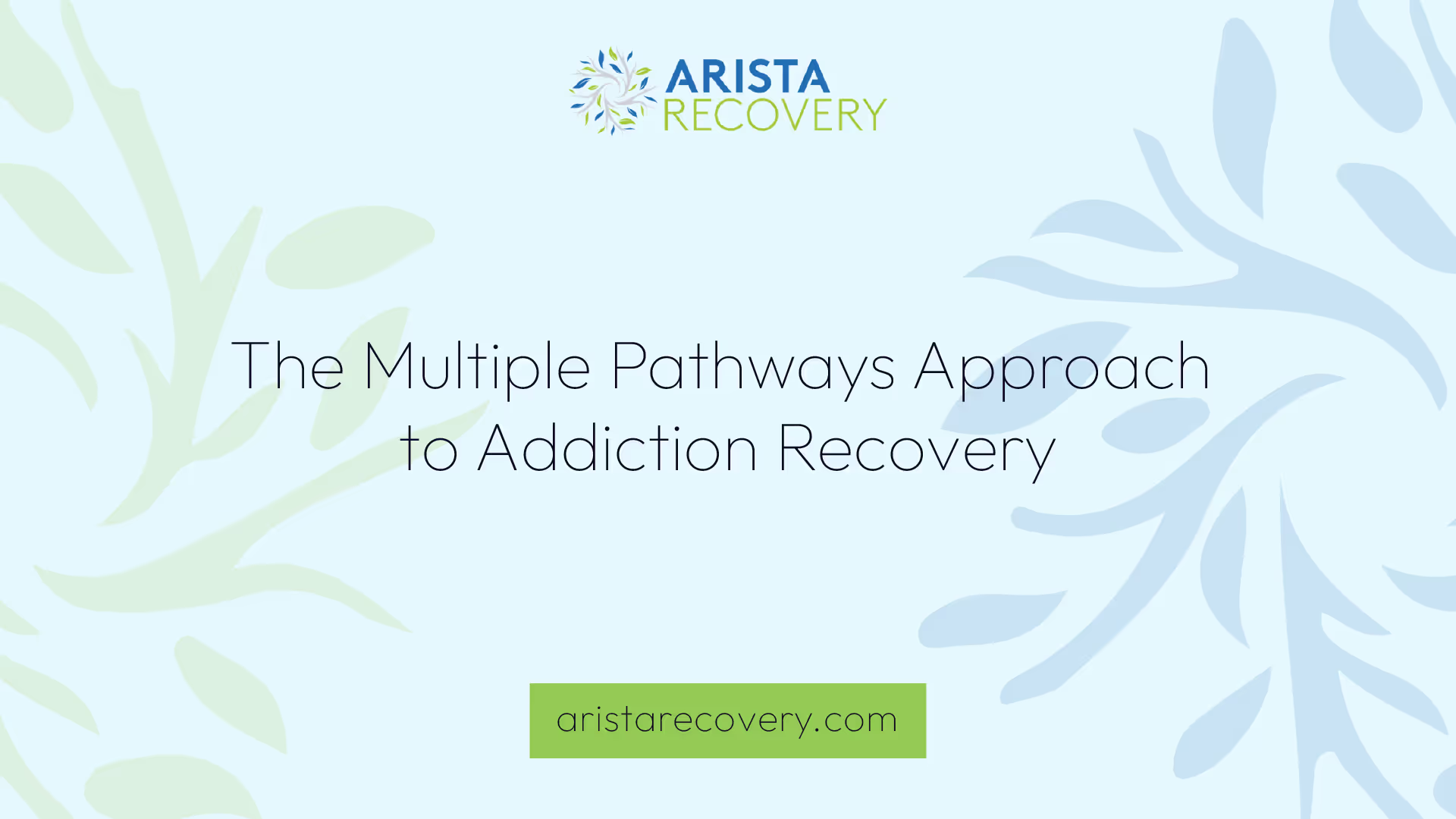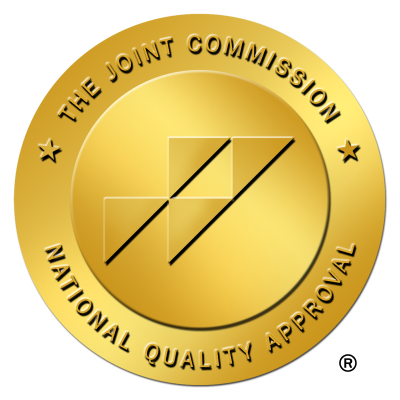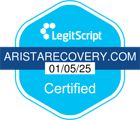The Multiple Pathways Approach to Addiction Recovery

Understanding the Multiple Pathways Approach
The journey to recovery from addiction is a deeply personal one, and the pathway to sobriety is not the same for everyone. This understanding forms the basis of the multiple pathways approach to addiction recovery, a concept that recognizes the diversity in recovery journeys and seeks to address individual needs in a more holistic manner.

Concept and Importance
The multiple pathways approach to addiction recovery acknowledges that there are many different ways to achieve and maintain sobriety, and that each person's journey to recovery is unique. It moves away from a one-size-fits-all perspective and instead embraces the idea that individuals may respond differently to different methods or combinations of methods.
The importance of this approach lies in its adaptability. Instead of having a rigid treatment plan, the multiple pathways approach allows for personalized treatment plans tailored to meet each individual's unique needs and circumstances. These plans can include a range of modalities such as therapy, medication-assisted treatment, mindfulness practices, and holistic treatments like yoga or acupuncture.
This approach recognizes that recovery is not just about addressing the addiction itself, but also the underlying issues that may have contributed to the addiction, offering a more holistic approach to recovery.
Evolution of the Approach
The multiple pathways approach to addiction recovery was developed in the 1990s in response to the limitations of traditional treatment models. These models were often based on a one-size-fits-all approach, which did not take into account the unique needs and experiences of individuals struggling with addiction.
Over time, addiction professionals recognized the need for a more individualized approach that could cater to the diverse experiences and needs of those seeking recovery. They began to acknowledge that there are various effective ways for individuals to recover from addiction, rather than a single, universally effective solution [3].
This shift in thinking marked the beginning of the multiple pathways approach, which has since become a cornerstone in addiction recovery, leading to more personalized and effective treatment plans and ultimately, better recovery outcomes.
Different Paths to Recovery
As part of the multiple pathways approach to addiction recovery, there are several distinct routes that one can take to achieve and maintain sobriety. These paths can be tailored according to individual needs and circumstances, making recovery a more personal and effective journey. This section explores three common paths: 12-step programs, medication-assisted treatment, and mindfulness and holistic practices.
12-Step Programs
One of the traditional methods for addiction recovery is through 12-step programs. These programs, such as Alcoholics Anonymous and Narcotics Anonymous, provide a structured approach to recovery based on a series of steps that include acknowledging the problem, seeking help, making amends, and helping others in recovery. The success of these programs lies in their ability to foster a sense of community and mutual support among individuals facing similar struggles.
Despite being a traditional method, 12-step programs are still an integral part of the multiple pathways approach. They offer a well-established framework for recovery and have helped countless individuals maintain long-term sobriety. However, they are but one path among many, and their effectiveness can vary greatly from person to person [1].
Medication-Assisted Treatment
Medication-assisted treatment (MAT) is another pathway in addiction recovery. This approach involves the use of medications like methadone, buprenorphine, or naltrexone, combined with counseling and behavioral therapies, to address opioid use disorders.
MAT works by reducing the physical symptoms of withdrawal and curbing cravings, thereby allowing individuals to focus on the other aspects of their recovery. This method has been shown to be particularly effective in treating opioid use disorders, and it is an important option within the multiple pathways approach.
Mindfulness and Holistic Practices
Finally, mindfulness and holistic practices offer another path to recovery. These practices, which can include meditation, yoga, acupuncture, and other forms of mind-body therapies, aim to help individuals manage stress, reduce cravings, and improve overall well-being.
The focus on mindfulness and holistic practices within the multiple pathways approach reflects a broader shift towards treating addiction as a whole-person issue. These practices can help individuals develop healthier coping mechanisms, improve their physical health, and cultivate a greater sense of self-awareness and control.
As part of the multiple pathways approach, it's important to recognize that each individual's journey to recovery is unique. What works for one person might not work for another, and it may take a combination of different methods to achieve lasting sobriety. The key is to explore different options and find the path that best suits the individual's needs and circumstances [3].
Tailoring Approaches to Individual Needs
The multiple pathways approach to addiction recovery emphasizes the importance of personalizing treatment to meet individual needs and circumstances. Understanding that recovery is a unique journey for each person, this approach strives to customize the treatment plan based on each individual's unique needs and preferences.
Assessing Individual Factors
The first step in creating a personalized recovery plan is assessing individual factors that might influence the success of recovery. This includes understanding the person's history with addiction, their personal preferences, their physical and mental health status, their social and environmental circumstances, and their readiness for change.
The multiple pathways approach recognizes that a singular focus on a specific pathway, such as 12-step programs, may not be suitable or effective for everyone. It encourages a comprehensive evaluation of the individual's needs and preferences to create a personalized recovery plan.
Creating Personalized Recovery Plans
With the assessment of individual factors complete, the next step is to create a personalized recovery plan that aligns with the individual's needs and preferences. Research suggests that individuals may benefit from different combinations of pathways to recovery, including mutual aid, psychotherapy, medications, and other strategies [3].
Personalized treatment plans are essential for addiction recovery because they recognize that what works for one person may not work for another. By tailoring treatment plans to meet each individual's unique needs and circumstances, we increase the chances of successful long-term recovery. Treatment plans may include a range of modalities such as therapy, medication-assisted treatment, mindfulness practices, and holistic treatments like yoga or acupuncture [2].
The multiple pathways approach to addiction recovery recognizes that there are various routes to recovery and that not all individuals benefit from the traditional 12-step program. This approach encourages individuals to find a personalized recovery path that suits their unique needs and circumstances [4].
In conclusion, the multiple pathways approach to addiction recovery underscores the importance of individualization in treatment planning. By assessing individual factors and tailoring recovery plans based on these unique needs and preferences, this approach increases the chances of successful, sustainable recovery.
Role of Peer Support in Recovery
Within the multiple pathways approach to addiction recovery, peer support plays a significant role. It provides both social and community support, which are key factors in establishing and maintaining recovery status, as reported by individuals in long-term recovery from substance abuse [5]. This support can be derived through building sober social networks and accessing mutual aid and community resources.
Building Sober Social Networks
Social factors play an important role in the development and recovery from substance use disorders (SUDs). Social isolation and peer influence can lead to the onset of substance use, while social network support for abstinence influences treatment outcomes. As such, building sober social networks becomes vital in maintaining recovery.
Former opiate addicts, for example, often decide to stop taking drugs when their addict identity conflicts with their other social identities, causing problems that become intolerable. Recovery involves managing a "spoiled identity" and restoring a more positive prior identity or establishing a new one. Mutual support groups and identification with a therapeutic community can play a role in recovery, with bonding, support, and abstinence-focused role models contributing to successful outcomes. Building sober social networks is crucial for maintaining recovery [6].
The social identity approach suggests that social group memberships inform self-concept and influence behavior. Identifying as a "drinker," "stoner," or "junkie" has implications for substance use behavior, while identifying with a recovery group or network may influence abstinence. Evaluation of recovery identity relative to addiction identity and increased identification with a therapeutic community are related to successful treatment outcomes.
Mutual Aid and Community Resources
Participation in formal treatment and longer time in treatment are consistently associated with better outcomes for individuals in short-term recovery from substance abuse. Affiliation with 12-step fellowships (e.g., Narcotics Anonymous) during and after treatment also helps in maintaining short-term abstinence [5].
Mutual aid and community resources are instrumental in providing the necessary support for individuals battling addiction. These resources not only offer emotional support but also provide practical help in maintaining abstinence and working towards recovery. Moreover, they often serve as a lifeline, offering hope and camaraderie to individuals in their most challenging times.
In conclusion, the role of peer support in recovery is vital. By building sober social networks and accessing mutual aid and community resources, individuals can find the strength, support, and motivation needed to overcome addiction and embrace a life of recovery.
Addressing Co-Occurring Disorders
In the context of the multiple pathways approach to addiction recovery, attention to co-occurring disorders is of paramount importance. These disorders, also known as dual diagnoses, involve the simultaneous presence of a substance use disorder and a mental health condition. Addressing these underlying issues is key to crafting effective, personalized recovery plans.
Identifying Underlying Issues
The first step in addressing co-occurring disorders is identifying the underlying issues. This process often involves comprehensive psychological assessments and screenings. The goal is to uncover any mental health conditions that might be contributing to an individual's addiction. These could include conditions such as depression, anxiety, post-traumatic stress disorder, and more.
Identifying these underlying issues is crucial because they often play a significant role in the person's addiction. For instance, a person might use substances as a way to self-medicate symptoms of a mental health condition. Alternatively, the substance use might exacerbate the symptoms of a pre-existing mental health condition.
Integrating Mental Health Care
Once the underlying issues have been identified, the next step is to integrate mental health care into the individual's recovery plan. This means that in addition to treatments aimed at addressing the substance use disorder, the individual also receives care for their mental health condition.
This integrated approach is often more effective than treating the disorders separately. That's because it allows for a more comprehensive understanding of the individual's needs and challenges. It also allows for the coordination of care, which can lead to better outcomes.
For instance, someone with depression and alcohol addiction might benefit from a combination of antidepressant medication, cognitive-behavioral therapy for depression, and a 12-step program for alcohol addiction. The specifics of the treatment plan would depend on the individual's unique needs and preferences.
The multiple pathways approach to addiction recovery recognizes the importance of addressing co-occurring disorders. By identifying underlying issues and integrating mental health care, it offers a personalized, comprehensive approach to recovery. This approach acknowledges the complexity of addiction and the need for individualized care, offering a more holistic path to recovery.
Evaluating Success in Recovery
In the journey towards overcoming addiction, measuring success is a multi-faceted process. This involves ongoing monitoring of progress over time, and adapting treatment plans as needed, in line with the principles of the multiple pathways approach to addiction recovery.
Monitoring Progress Over Time
Tracking progress is integral to the recovery process. Several factors contribute to the successful establishment and maintenance of recovery status. According to an NCBI study, individuals in long-term recovery—defined as a median recovery time of 12 years—cited social and community support, affiliation with 12-step organizations, and the negative consequences of substance use as significant in their recovery journey.
For those in short-term recovery, participation in formal treatment and longer time in treatment were consistently associated with better outcomes. Additionally, various psychosocial factors such as commitment to total abstinence, motivation, and social support from family and friends have been found to predict positive outcomes in maintaining short-term abstinence.
Adapting Treatment Plans as Needed
As the individual progresses through their recovery journey, it may become necessary to adapt their treatment plan. For instance, the NCBI study found that individuals with longer abstinence were less likely to attend 12-step meetings, suggesting that those with longer recovery time might attend such meetings less often.
Moreover, participants with a shorter substance use history were more likely to have attended only 12-step groups compared to those who had participated in both 12-step groups and formal treatment. This highlights the importance of tailoring treatment plans to the individual’s unique circumstances and stage of recovery.
In conclusion, evaluating success in recovery is a dynamic process that requires regular monitoring of progress and adaptation of treatment plans. By adhering to the multiple pathways approach to addiction recovery, individuals can maximize their chances of achieving and maintaining recovery.
References
[1]: https://www.townsendla.com/blog/multiple-pathways-approach/
[2]: https://www.wellbrookrecovery.com/post/multiple-pathways-approach
[3]: https://www.recoveryanswers.org/recovery-101/pathways-to-recovery/
[4]: https://7summitpathways.com/blog/multiple-pathways-to-recovery/


